Taking medical information to a new dimension
Surgical clarity in the palm of your hand
Patient-specific 3D anatomic models that help illuminate surgical pathways.
Ricoh 3D for Healthcare offers precision by providing highly accurate, tactile, 3D printed models that match real patient anatomy. Prepare for surgeries with a multidimensional perspective. Practice intricate maneuvers and approaches. Communicate with patients using a tangible reference they can grasp. Whether you opt for our print-and-ship service or an onsite 3D print lab managed by Ricoh 3D at your hospital, we prioritize your needs.
Webinar: Hear from your peers about their experiences using Ricoh 3D for Healthcare anatomic models.
Reserve your spot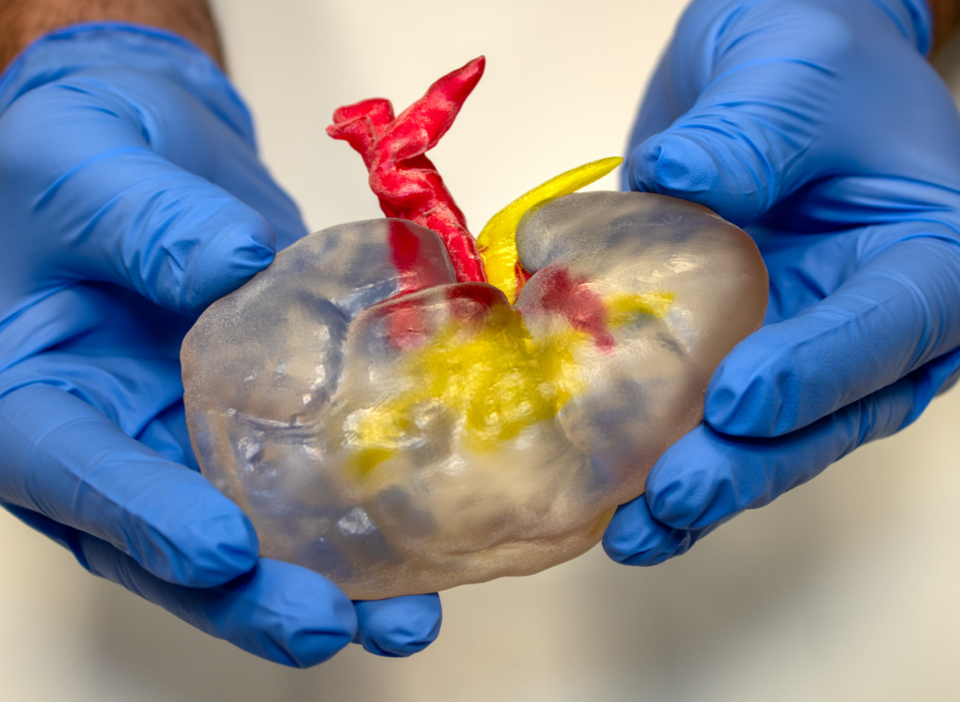
Help promote shorter surgeries, cost savings and higher patient satisfaction
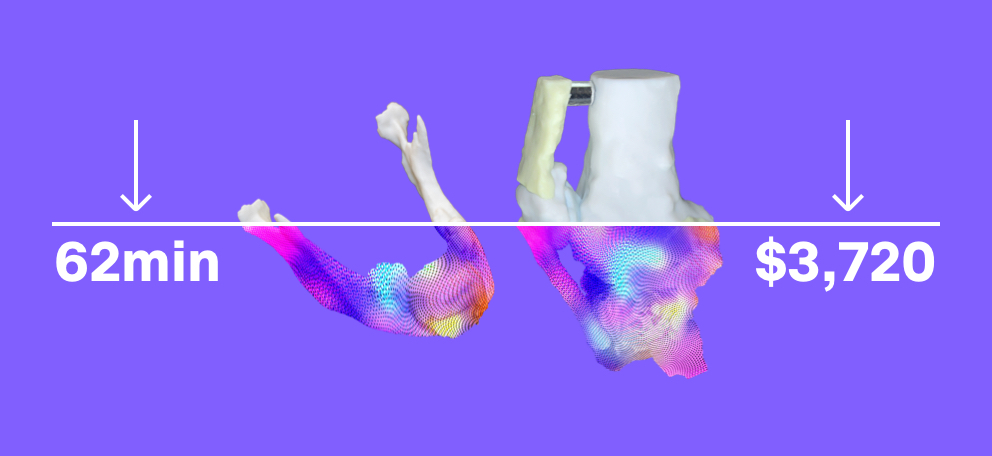
62 minutes and $3,720 saved1
Orthopedic and maxillofacial surgical applications using 3D printed anatomic models showed a time and cost savings.
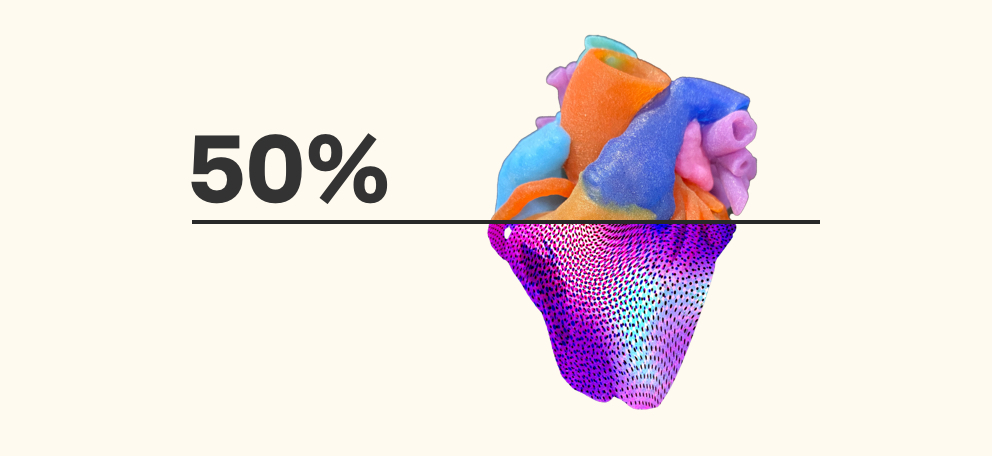
50% of surgical plans revised2
Complex congenital heart disease cases experienced improved understanding from use of a 3D printed model.
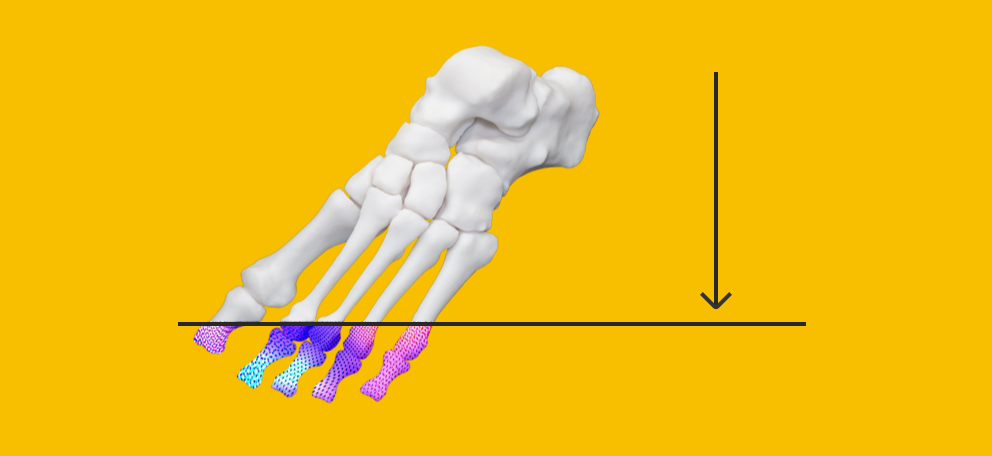
Significantly less blood loss3
Pilon fracture patients whose surgeons used 3D printed modeling experienced lower rates of intraoperative blood loss.
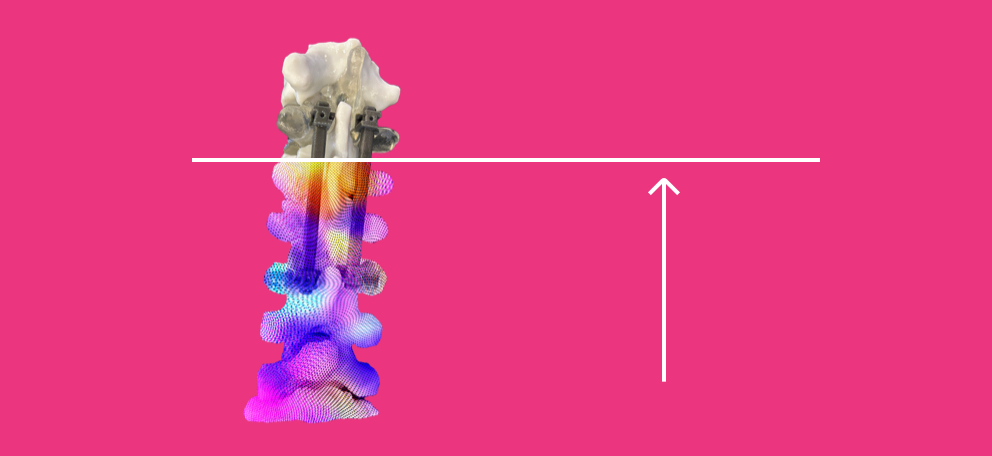
Better-informed patients4
Degenerative lumbar disease patients demonstrated an expanded level of understanding and higher satisfaction rates.
State-of-the-art technology
and the support of an expert team

Powerful 3D printed models for no or low upfront cost.
Work with our offsite production facility for delivery within a week, or let us come to you as a Ricoh-staffed managed service at your point of care.

No added work for your team. We handle everything.
Avoid the cost and headaches of implementing 3D printing technologies and the regulatory hurdles of setting up your own medical device production.

Direct ordering. No workflow disruptions.
Order 3D printed models from your familiar radiology viewer. Our platform seamlessly connects with various viewers so you can maintain your current workflow.

High quality and accuracy are built into the process.
Ricoh's biomedical engineers segment DICOM files to your specifications. Robust quality control processes ensure accuracy of the model.

A mix of materials and colors help identification.
Get the tactility you need to practice cuts effectively. Use colors to highlight vascular structures and tissue, or to identify anomalies such as tumors.

FDA-cleared for 7 major anatomic regions.
Our FDA 510(k) clearance allows us to produce patient-specific anatomic models for diagnostic use across most human anatomical regions.*
Magazine podcast featuring Ricoh 3D printing for healthcare
Hear from Gary Turner, Managing Director of Ricoh’s Additive Manufacturing team, as he discusses barriers that a healthcare organization may face when trying to set up a medical 3D printing program on-site. Learn how Ricoh is simplifying the workflow to remove these challenges and make it easier for every surgeon, physician and care team to be able to access this game-changing technology. Jump to the 21 minute-mark to hear about Ricoh’s point-of-care 3D manufacturing offering where Ricoh brings our expertise directly to your healthcare facility.

Get the eBook
Take your 3D printing capabilities to the next level.
Learn how to evaluate 3D medical modeling options to drive growth and better experiences for your surgical practice.
Download now*Ricoh 3D for Healthcare received FDA 510(k) clearance for
patient-specific anatomic modeling in the following applications: Craniomaxillofacial, Orthopedic,
Cardiovascular, Neurological, Genitourinary, Gastrointestinal and Breast.
Ricoh USA, Inc.'s terms and conditions for anatomic models will apply to any proof-of-value request. Ricoh
USA, Inc. reserves the right to reject requests for proof-of-value models in its sole discretion.
1 Medical 3D Printing Cost-Savings in Orthopedic and Maxillofacial Surgery: Cost Analysis of
Operating Room Time Saved with 3D Printed Anatomic Models and Surgical Guides” Academic Radiology, Vol 27,
Issue 8.
2 “Three-dimensional printed models for surgical planning of complex congenital heart defects: an
international multicentre study”, Eur J Cardiothorac Surg. 2017 Dec 1;52(6):1139-1148. doi:
10.1093/ejcts/ezx208. PMID: 28977423.
3 Zheng W, Chen C, Zhang C, Tao Z, Cai L. The Feasibility of 3D Printing Technology on the
Treatment of Pilon Fracture and Its Effect on Doctor-Patient Communication. Biomed Res Int. 2018 Jan
18;2018:8054698. doi: 10.1155/2018/8054698. PMID: 29581985; PMCID: PMC5822891.
4 Yuan-dong Zhuang, Mao-chao Zhou, Shi-chao Liu, Jian-feng Wu, Rui Wang, Chun-mei Chen,
Effectiveness of personalized 3D printed models for patient education in degenerative lumbar disease,
Patient Education and Counseling, Volume 102, Issue 10, 2019, Pages 1875-1881, ISSN 0738-3991,
https://doi.org/10.1016/j.pec.2019.05.006.
